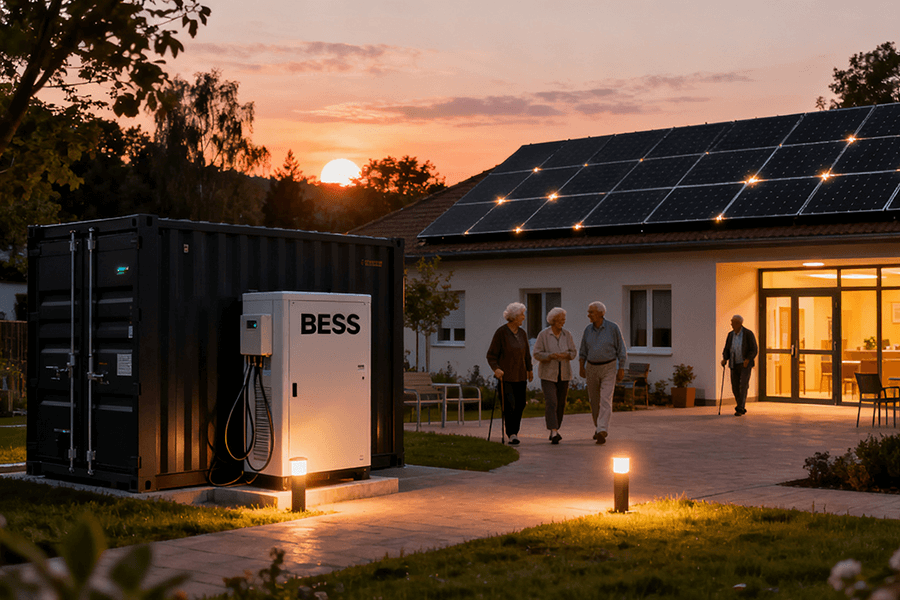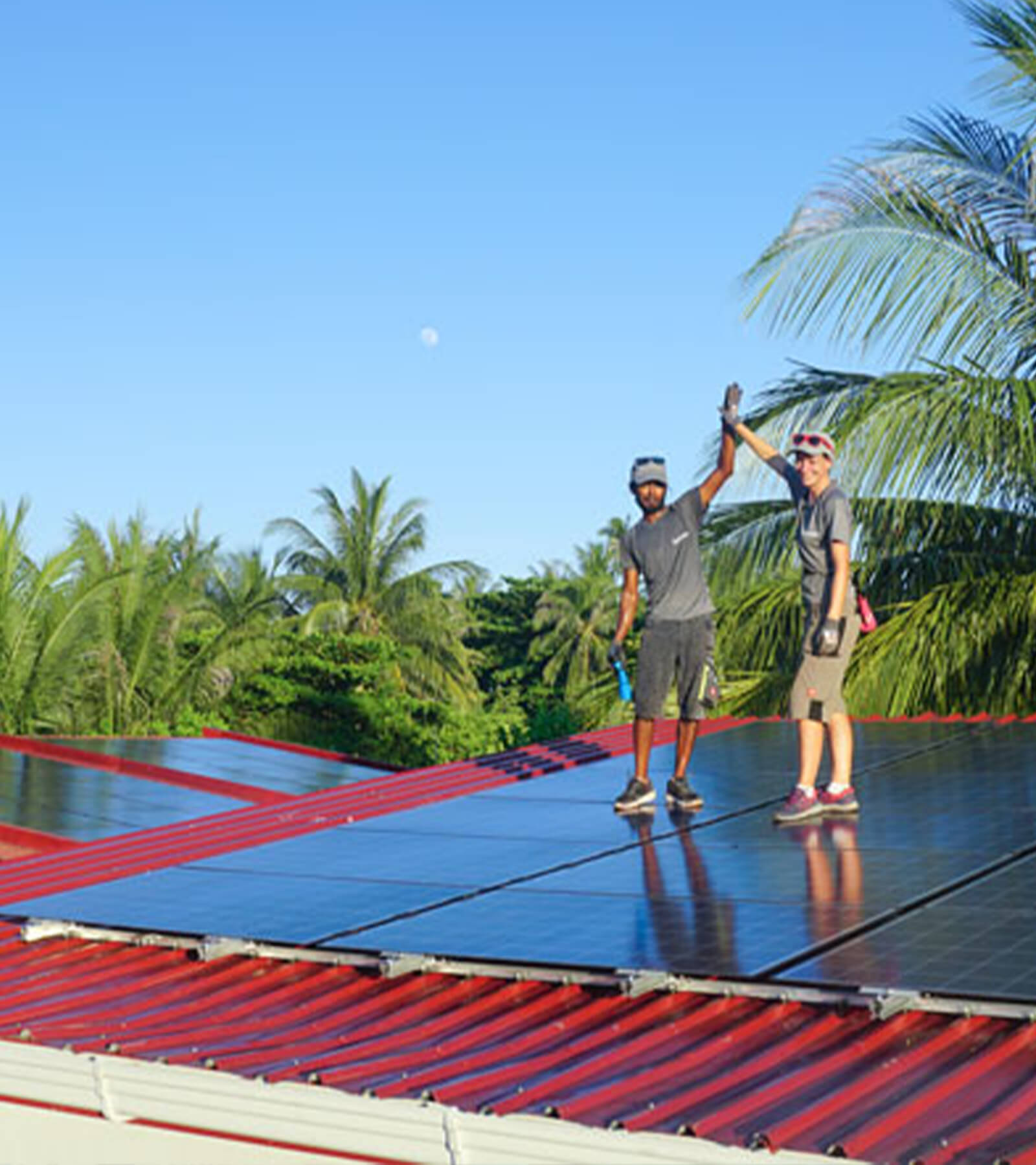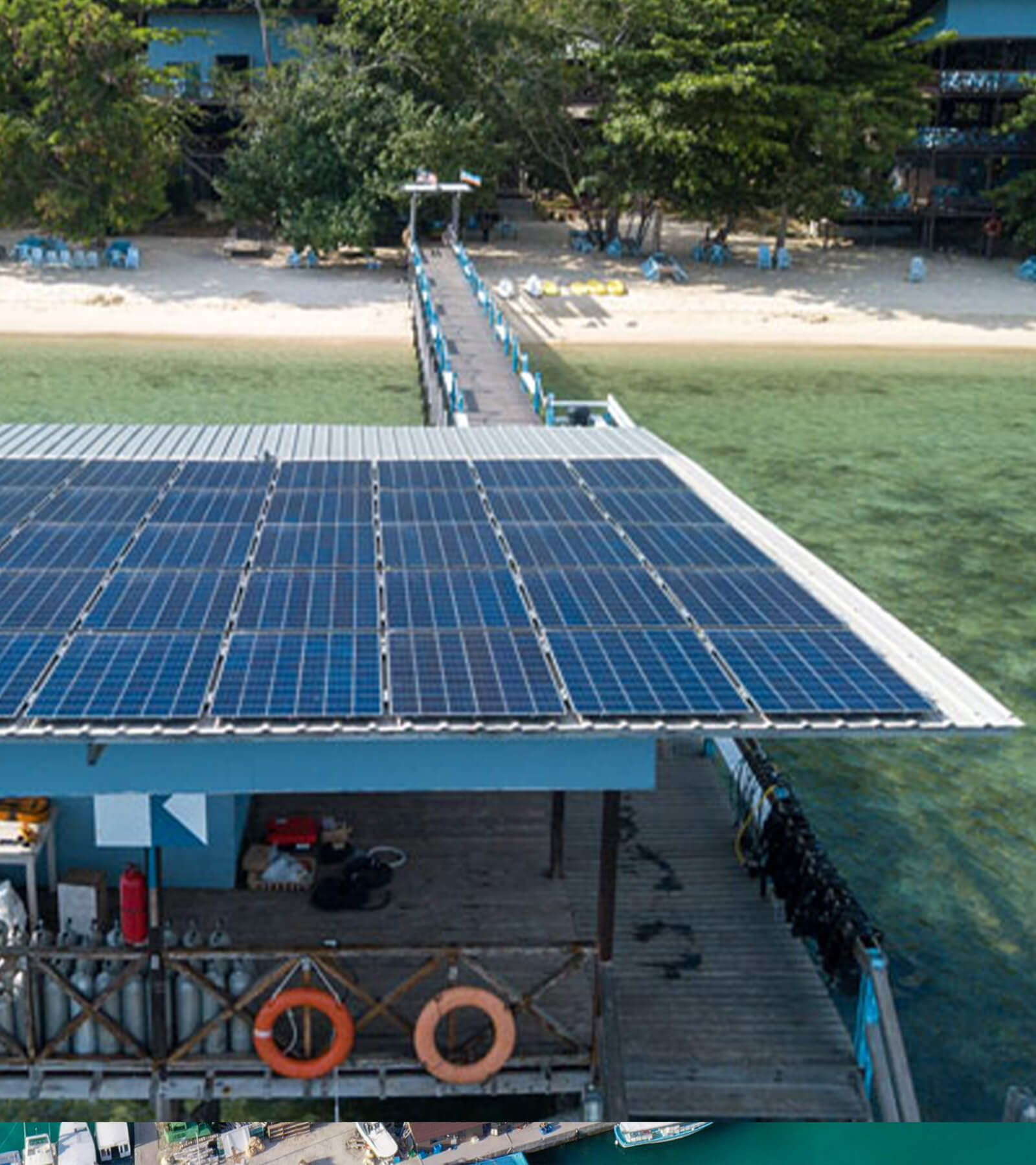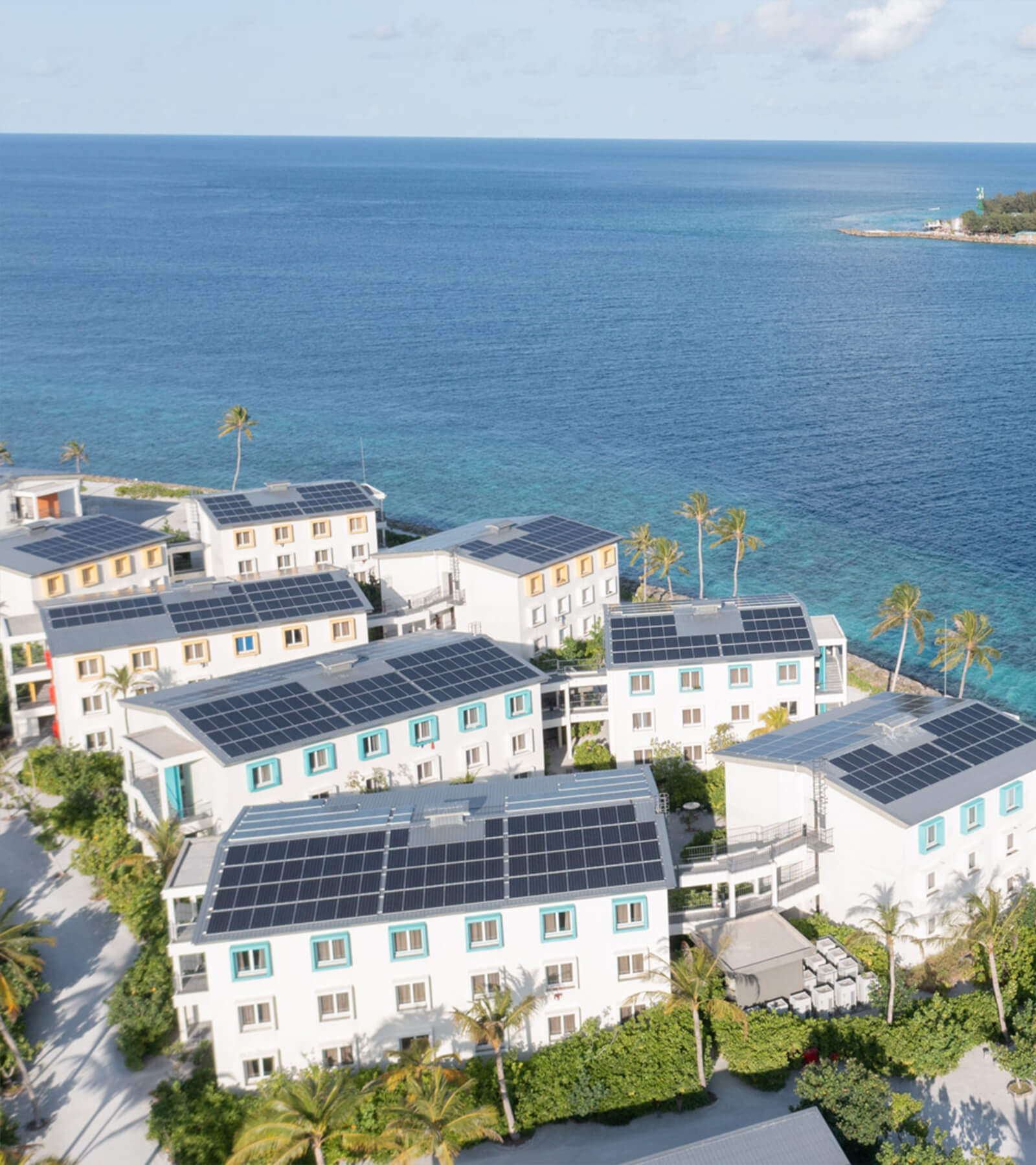
When the Lights Go Out, Seniors Can’t Wait
The Scale and Significance of EU Senior Day Care
Europe’s senior day care network is expansive—and increasingly vulnerable. With over 3,200 centers operating across the EU, these facilities are the heartbeat of community care for millions of elderly residents.
This critical role is underscored by the European Commission’s Directorate-General for Employment, Social Affairs and Inclusion (DG EMPL), which prioritizes social inclusion and elderly care policies https://ec.europa.eu/social/main.jsp?catId=1469.
DG EMPL’s mandate to protect social rights and ensure fair transitions directly ties to infrastructure reliability. Simply put: you can’t deliver quality care if the power’s out.
The Looming Threat: Power Outages in Care Facilities
A 2024 report by the European Association of Senior Care Providers (EASCP) reveals a alarming statistic: 45% of EU senior day care centers face weekly power outages.
For elderly residents, these outages are far more than an inconvenience—they’re a safety hazard. Key risks include:
-
Hypothermia from failed heating systems (seniors have reduced temperature regulation).
-
Interrupted access to critical medical monitoring for chronic conditions (hypertension, diabetes, COPD).
-
Delayed emergency response due to non-functional call systems.
Contextualizing the Risk: Insights from Belgium’s Care System
While direct EU data on cold-related incidents from outages is pending, Belgium’s elderly care system—among Europe’s most established—offers critical context.
Belgium’s care landscape highlights the stakes:
-
100% occupancy of nursing home beds, with waitlists spanning 1-2 years.
-
Many seniors live on monthly pensions under €1,000, relying entirely on government-subsidized care http://paper.people.com.cn/rmwz/html/2013-09/01/content_1307462.htm.
-
Power outages threaten not just health checks, but subsidized meals, 24/7 caregiver support, and basic heating.
The impact is disproportionate: annually, 25% of health services at EU senior day care centers are canceled due to power disruptions, and low-income seniors bear the brunt of these gaps.
The Human Cost: Real-Life Scenarios
Consider the tangible impact on individual seniors:
Scenario 1: An 82-year-old with hypertension arrives for a weekly checkup—funded by their €800 monthly pension—only to find the blood pressure machine inoperable due to a grid failure. Their condition goes unmonitored, increasing stroke risk.
Scenario 2: A 79-year-old with arthritis sits in a 16°C room after the heater fails. Their joints stiffen, limiting mobility, and the emergency call button doesn’t work—leaving them stranded for hours.
The Solution: BESS Containers as Resilience Guardians
Enter BESS (Battery Energy Storage System) containers—portable, scalable, and surprisingly affordable energy solutions that act as a “Swiss Army knife” for power reliability. Their core capabilities include:
-
Millisecond response to outages, ensuring no interruption to critical systems.
-
Energy storage for off-peak hours, cutting peak-time costs.
-
Seamless integration with solar panels, supporting renewable energy goals.
For senior care centers, BESS isn’t just a technical upgrade—it’s a care upgrade. It aligns directly with DG EMPL’s mission to build resilient social services, ensuring that care doesn’t stop when the grid does.
Core Applications: BESS Containers as the Care Backup
Senior day care centers aren’t just buildings—they’re 9 AM-5 PM operations (with stakes that feel 24/7) where every electrical device ties back to a senior’s wellbeing. BESS containers don’t just keep the lights on; they keep the care going—whether that’s powering a wheelchair lift or a craft station for a dementia patient.
Below’s how they make a tangible difference, with real-world examples from EU centers.
Medical Equipment and Heating: The Non-Negotiables
For elderly residents with chronic conditions—think diabetes, heart disease, or COPD—medical equipment isn’t a luxury; it’s a necessity. A 1-hour power outage can halt health services entirely, and a 3-hour outage? That’s a crisis waiting to happen.
But BESS containers turn “crisis” into “business as usual.”
Take the Berlin Community Senior Center in the Neukölln district—a facility serving 40 low-income seniors, many of whom rely on government-subsidized health checks (mirroring Belgium’s subsidy model).
In January 2024, a severe storm knocked out the local grid for 3 hours—right in the middle of morning health checks. Thanks to their 250kWh BESS container, 8 critical medical devices (including 3 oxygen concentrators and 5 blood pressure monitors) stayed operational, and the heating system maintained a cozy 23°C.
The result? 40 seniors received their scheduled care, and 12 potential emergency hospital transfers were avoided—saving the center (and local government) an estimated €12,000 in emergency service costs.
“We used to panic when the power flickered,” says center director Heidi Müller. “Now the BESS does the worrying for us. Last winter, when the grid went down, Mrs. Schmidt—our 89-year-old with COPD—didn’t miss a minute of oxygen. That’s not just reliability; that’s humanity.”
Activity Tools and Safety Systems: Keeping Minds and Lives Safe
Senior care isn’t just about physical health—it’s about mental stimulation too. Craft stations, music players, and book clubs keep minds sharp, while emergency call systems ensure help is never more than a button press away.
Disrupt these routines, and anxiety spikes—especially for seniors with dementia or cognitive impairments.
The Madrid Centro de Atención a Mayores learned this lesson firsthand. This center, which serves 55 seniors (10 of whom have early-stage dementia), relies on daily craft activities to reduce agitation—a practice backed by EU guidelines on cognitive care.
In March 2024, a grid fault left the center without power for 2.5 hours. But their 200kWh BESS container kept craft stations running (seniors were in the middle of making ceramic mugs for Mother’s Day) and emergency call systems active.
Staff reported zero anxiety-related incidents—including 5 seniors who typically become agitated during routine disruptions.
“Those mugs got finished, and that’s not just a craft win,” says activity coordinator Carlos Ruiz. “For Mr. Lopez, who has dementia, the routine of gluing and painting keeps him grounded. Without power, he’d have wandered the halls, confused. The BESS didn’t just save the day—it saved his sense of calm.”
BESS Impact: Key Metrics from European Centers
|
Center Location
|
BESS Capacity
|
Outage Duration Covered
|
Key Outcome
|
Estimated Cost Savings/Avoidance
|
|---|---|---|---|---|
|
Berlin, Germany
|
250kWh
|
3 hours
|
12 emergency transfers avoided; 40 health checks completed
|
€12,000 (emergency services)
|
|
Madrid, Spain
|
200kWh
|
2.5 hours
|
0 anxiety incidents; 5 dementia patients maintained routine
|
€3,000 (mental health support)
|
|
Paris, France
|
180kWh
|
2 hours
|
35 weekly meal program participants served; kitchen operations uninterrupted
|
€1,750 (meal subsidies protected)
|
Cost Savings and Sustainability: BESS That Pays for Itself
Local governments already stretch budgets to fund senior care—Belgium alone spends over €1.2 billion annually on elderly care facilities, with many centers operating on razor-thin margins http://paper.people.com.cn/rmwz/html/2013-09/01/content_1307462.htm.
In Brussels, for example, a private nursing home like Val Duchesse charges €51.73-€64.29 per day per resident, with government covering the gap for low-income seniors. Every euro saved on energy is a euro that can go toward hiring more caregivers or upgrading wheelchairs.
BESS containers don’t just improve care—they save money, and even unlock EU grants.
Peak Shaving: Beating the Energy Rush Hour
Senior day care centers operate 9 AM-5 PM—exactly when electricity demand (and prices) peak. During these hours, heating systems and medical equipment push power use 30% higher than off-peak times.
BESS containers solve this by storing energy during cheap, off-peak hours (usually 10 PM-6 AM) and using it during expensive peak times—a trick called “peak shaving.”
The Amsterdam West Senior Care Center—which serves 60 seniors and follows Belgium’s staffing model (7 caregivers in the morning, 3 in the afternoon)—installed a 220kWh BESS container in 2023.
The results are impressive: the system cut peak demand by 27%, slashing the center’s annual energy bill by €5,200. For context, that’s enough to buy 10 new wheelchairs (€500 each) or fund a month of nutrition upgrades (fresh fruit and vegetables for all residents).
“That’s not pocket change,” says facility manager Lena de Vries. “We used that money to buy new walkers and upgrade our nutrition program—things we’d been putting off for years. Before the BESS, we had to choose between fixing the broken lift or buying more meal trays. Now we don’t have to choose.”
Peak Shaving Impact: Amsterdam Center Breakdown
|
Metric
|
Pre-BESS (2022)
|
Post-BESS (2023)
|
Change
|
|---|---|---|---|
|
Peak Hour Energy Use
|
180 kWh
|
131.4 kWh
|
-27%
|
|
Annual Energy Cost
|
€19,250
|
€14,050
|
-€5,200
|
|
Budget Allocated to Care
|
€85,000
|
€90,200
|
+€5,200
|
Solar Integration: Green Energy = Green Grants
The EU’s “Sustainable Senior Care” certification requires facilities to use renewable energy—and BESS containers are the missing link between solar panels and reliable power.
Solar panels generate energy during the day, but BESS stores it for cloudy days or evening use, ensuring consistent renewable energy supply. This not only cuts carbon emissions but also makes centers eligible for EU grants—critical for facilities operating on tight budgets.
The Copenhagen Elderly Activity Center—which serves 75 seniors and has a rooftop garden for cognitive therapy—paired a 180kW rooftop solar system with a 250kWh BESS container in 2024.
Now, 50% of the center’s operations run on renewable energy, earning them the EU certification—and €35,000 in annual “Aging Well” grants. For a center that spends €200,000 annually on staff and supplies, this grant covers 17.5% of their caregiver costs.
“Solar panels are great, but they’re like a sunny-day friend,” says sustainability coordinator Lars Hansen. “The BESS is the friend who shows up even when it rains.”
Last month, we had three cloudy days in a row, but we still ran on 45% renewable energy—thanks to the BESS. And the grant? That let us hire an extra part-time caregiver for evening shifts. Now seniors don’t have to wait as long for help.”
Community Impact and Compliance: BESS for the Vulnerable
For many seniors, day care centers aren’t just a place to socialize—they’re a lifeline. 40% of center attendees rely on these facilities for basic needs like meals, medication reminders, and social interaction.
This is especially true for low-income or isolated seniors who can’t afford in-home care. BESS containers ensure these needs are met, even when the grid fails, and help centers comply with EU policies to support vulnerable populations.
Care Continuity for Vulnerable Seniors
Isolated and low-income seniors are the most affected by care disruptions. In Belgium, for example, seniors on pensions under €1,000 depend on government-subsidized meals and health checks—gaps in these services can lead to malnutrition or untreated chronic conditions.
The Paris 19th Arrondissement Senior Center mirrors this model, serving 35 isolated seniors who rely on the center’s weekly hot meal program (funded by the local government at €5 per meal).
In February 2024, a 2-hour power outage threatened to cancel the program—but their 180kWh BESS container kept the kitchen running.
“These meals aren’t just food,” says social worker Marie Dubois. “Mr. Dubois (no relation) is 84 and lives alone—he doesn’t cook because his hands shake. That weekly meal is his only hot meal of the week. Without the BESS, he’d have eaten a sandwich from the corner store, if anything. Now he still gets his coq au vin, and we still get to check in on him.”
The center estimates that the BESS protected €175 in meal subsidies that day—and more importantly, prevented 35 seniors from missing a critical nutrition source.
EU “Aging Well” Funding: BESS as a Grant Magnet
The EU offers grants covering up to 65% of project costs for senior care facilities that improve reliability and sustainability—aligning with DG EMPL’s goal of resilient social services https://ec.europa.eu/social/main.jsp?catId=1469.
BESS containers are a surefire way to qualify, as they check both boxes: reliability for care continuity and sustainability for green goals.
The Lisbon Community Senior Center—which serves 50 seniors, 60% of whom are low-income—applied for an EU grant in 2023, citing their planned BESS installation.
They received €60,000, which covered the entire cost of the 220kWh system and allowed them to expand their physical therapy services. Now, they serve 30% more seniors annually (up from 50 to 65) and offer weekly physical therapy sessions for arthritis patients—funded by the remaining grant money.
“The BESS didn’t just get us funding,” says director Ana Silva. “It let us help more people. Before, we had to turn away seniors because we couldn’t afford to keep the therapy room powered all day. Now, with the BESS, we can run the therapy equipment (like ultrasound machines) without worrying about peak costs. And the grant? That let us hire a part-time therapist. Mrs. Costa, who has arthritis, can now walk to the grocery store without pain. That’s the real win.”
Why Maxbo Solar? We Speak “Senior Care” and “Reliability”
At Maxbo Solar, we don’t just build BESS containers—we build solutions that fit the unique needs of senior day care centers. I’ve spent 10 years in the energy storage industry, and nothing matters more to me than knowing our systems are keeping seniors safe and comfortable.
Whether that’s powering an oxygen concentrator in Berlin or a meal program in Paris, we design with the specific challenges of senior care in mind. Here’s why we’re the partner of choice for European care facilities:
-
Senior-Centric DesignQuiet operation: Under 50 decibels (quieter than a kitchen fridge), so nap times stay undisturbed.
-
Compact size: Fits in small urban backyards—ideal for centers like Amsterdam West.
-
User-friendly interface: Large color-coded buttons, 5 EU language options, and 24-point emergency labels for vision-impaired users.
-
EU Grant Expertise92% success rate with 120+ care facilities.
-
Tailored grant proposals: Highlights BESS benefits for low-income seniors and sustainability goals.
-
Lisbon center success: Secured full €60k funding for BESS and therapy expansion.
-
Local SupportOn-the-ground teams in Berlin, Madrid, Paris, Lisbon.
-
Rapid response: Average 2-hour service time for urgent issues (like Berlin center’s warning light).
-
Staff training included with every installation.
-
Proven ResultsPowered 45+ centers through outages.
-
Average €4,800 annual savings per facility.
-
Direct impact: Kept oxygen running, meals served, and seniors calm during disruptions.
We’re not just in the energy business—we’re in the care business. Visit www.maxbo-solar.com to schedule a free consultation.
We’ll assess your center’s needs, help you calculate potential savings, and even walk you through grant options. Let’s make sure your center’s power is as reliable as the care you provide.
Conclusion: BESS Containers—The Care Lifeline
The Core Mandate: Why Senior Care Centers Deserve Reliable Power
European community senior day care centers are tasked with one of the most important jobs: caring for the people who built our communities.
This responsibility demands infrastructure that matches the stakes—and reliable power is non-negotiable. BESS containers deliver that reliability, every time.
The Multifaceted Value of BESS: Beyond Backup Power
BESS containers aren’t just “emergency generators”—they’re holistic solutions that drive value across four critical dimensions:
-
Care Continuity: Prevent disruptions to health checks, meal programs, and therapy sessions.
-
Budget Efficiency: Free up funds for caregivers and equipment by cutting energy costs.
-
Funding Access: Unlock EU grants by meeting sustainability and resilience requirements.
-
Safety Assurance: Keep oxygen running, heating active, and emergency systems operational.
The Future of Elderly Care: Resilience as a Priority
The future of elderly care is bright—and powered by BESS. While specific 2035 forecasts from the International Energy Agency (IEA) are pending, industry trends clearly signal a shift.
EU senior care facilities are increasingly prioritizing energy resilience, driven by two key factors:
-
Policy alignment with DG EMPL’s focus on resilient social services.
-
Growing demand to support Europe’s aging population with consistent care.
The Critical Question: Affordability vs. Necessity
For centers still on the fence about investing in BESS, the question isn’t “Can we afford a BESS container?” It’s “Can we afford not to?”
The cost of inaction—emergency transfers, missed care, lost grants—far outweighs the investment in a BESS system. This isn’t a luxury; it’s a strategic necessity.
Real-World Impact: BESS in Action Across Europe
Across the EU, BESS containers are already making a tangible difference in the lives of seniors and care providers:
-
Belgium: With 100% nursing home occupancy and long waitlists, BESS maximizes the value of existing care resources.
-
Berlin: A 250kWh BESS avoided 12 emergency transfers, sending 12 seniors home healthy instead of to the hospital.
-
Paris: An 180kWh system ensured 35 isolated seniors received hot meals during an outage—protecting their nutrition and dignity.
The Final Word: Reliability as a Right
After all, when it comes to senior care, reliability isn’t a luxury—it’s a right.
BESS containers don’t just provide power; they uphold that right. They ensure that no matter what the grid brings, care continues, seniors stay safe, and dignity remains intact.












